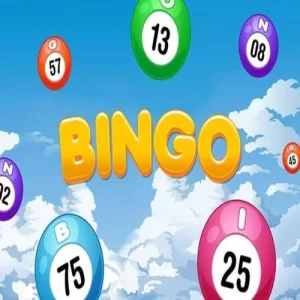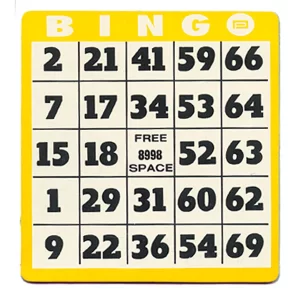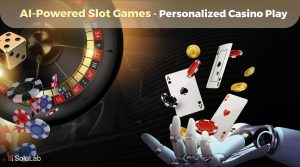The Psychology of Bingo Players: A Study on Emotional Control

Anticipation of waiting for a number to be called can provide an exhilarating adrenaline rush, with winning and losing serving as emotional rollercoasters that keep players coming back for more.
Participants often cited bingo as an outlet from daily tribulations and challenges, including domestic violence, illness and financial strains that had profoundly changed their gambling experiences.
Game of chance
Bingo is both a game of chance and skill. Players must mark cards and recognize patterns, which is an engaging cognitive challenge that helps develop visual acuity and contrast sensitivity. Furthermore, its fast-paced nature encourages players to focus on one task at a time while training their brains to respond quicker resulting in higher scores on the criterion of command scale.
This film examines the complex subculture surrounding bingo players and their families. Through interviews with bingo players themselves and interviews with those close to them, this movie delves into its inner workings, showing both its rewards and detriments; its social effects; as racism, poverty and stress often play a role in creating or worsening gambling-related harm; it offers an intriguing peek at an underrated pastime; must-watch for fans of documentaries such as Edward Hopper’s Nighthawks or cult films such as Gambling Gods and LSD; an insightful yet entertaining look that explores all facets of its many different sides.
Social interaction
Studies have demonstrated the efficacy of playing bingo for improving memory, thinking, orientation, and language in older adults with dementia. Furthermore, bingo provides a social activity which stimulates brains as participants interact socially within groups; increases physical activity levels; and enhances sleep quality – making this form of gaming an attractive option for them.
This study conducted tests that compared participants who play six-card bingo to non-players and controls. Test subjects were evaluated on reaction time, ability to scan their environment for information, and memory for previously seen objects. Results show that those who participated in bingo games were faster than their non-playing counterparts due to the high concentration required by this game.
Participants emphasized the significance of bingo in their lives and its ability to connect them with others. Furthermore, they described how bingo often co-exists with other forms of gambling such as raffles, lucky envelopes and EGMs and identified social injustice and regulatory inadequacies as sources of harm.
Dopamine release
At the moment of victory in a game, your brain releases dopamine – the same chemical found in foods like ice cream and coffee. While this feeling might only last briefly, it provides confidence and pleasure boosts as well as providing that adrenaline rush you find playing bingo!
Researchers from the University of Southampton conducted a recent study which concluded that bingo can significantly enhance core mental functions. She conducted tests comparing players and non-players of bingo and found significant increases in speed, attention, memory and pattern recognition skills among both groups. She states that bingo doesn’t deserve its negative reputation and plays an integral part of many people’s lives.
She found that bingo can help people cope with life events such as family deaths and poverty. This was particularly evident among Aboriginal communities, where gambling could offer an escape from trauma associated with family loss and isolation. Furthermore, bingo provides relief from everyday stresses of managing multiple responsibilities simultaneously.
Addiction
Bingo is an affordable social game characterized by social interaction. The game can be enjoyed in homes, clubs and community centres alike; additional products such as instant lottery tickets or raffle tickets may enhance its experience further. A single bingo session costs anywhere from $5-$48 depending on its length – ideal for busy families!
Participants in our research reported a variety of harms associated with bingo play; however, most participants perceived bingo to be low-risk form of gambling that could be easily controlled through time and money limits. They described using it as an escape from daily stressors such as caring for elderly partners with dementia or other illness, poverty or family tragedy – experiences compounded by structural disadvantages like systemic racism and racialised poverty; strategies designed to address such factors may help to minimize bingo-related harms.





